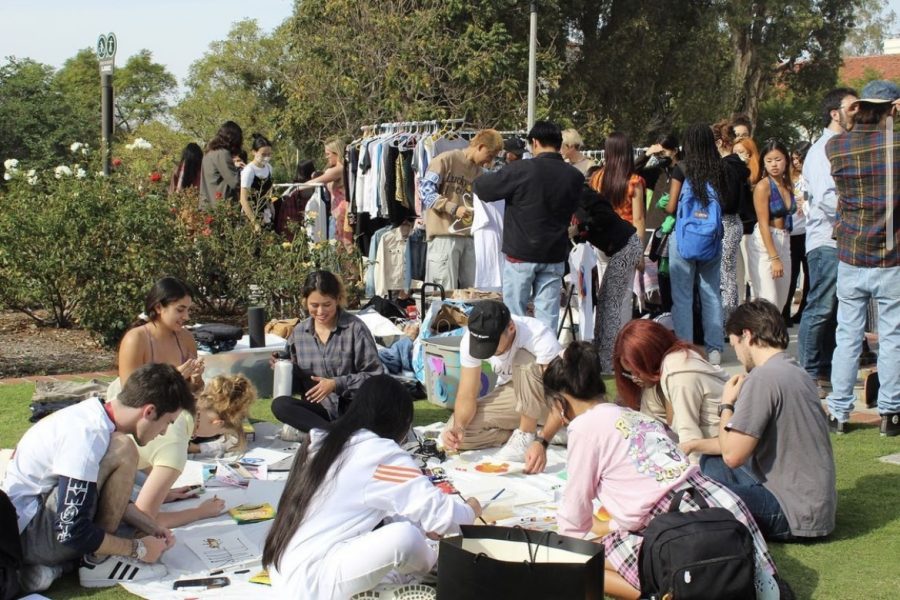Fashion plays a crucial role in people’s lives. It allows individuals to freely express themselves and their creativity. But at what cost will one’s fashion choices have a long-term environmental impact?
Major companies that contribute to the unsustainable methods of fast fashion, or the mass production of clothing, include Shein, Princess Polly, Forever 21 and H&M. These businesses profit from their insufficient efforts to produce ecologically friendly clothing.
At San Diego State, F*** Fast Fashion has actively participated in raising awareness surrounding sustainable fashion and conscious consumption. FFF’s mission is advocated by Rachel Jung, the club’s president who is a fourth-year integrated marketing communications student.
“We want to build a community where we are not shaming people for buying fast fashion because in the end, it’s not the consumers’ fault. But what we can do is increase more awareness in getting people to know that there are an endless amount of options in secondhand clothes that you can do so much with,” Jung said.
Jung joined FFF in the spring of 2021 when the club’s communication was moved online due to COVID-19. Her interest in the fashion industry prompted her to join, especially once she discovered how much the fashion industry has affected Generation Z.
“Just seeing how that market really influenced an entire generation on how to consume clothes, it was kinda disappointing to see that my mindset was like that too. And I didn’t like it because it seemed as if we were treating clothes as such a temporary thing when clothes should be something that are intertwined with us and throughout our growth,” Jung said.
SDSU students who share Jung’s perspective on fast fashion have discovered this club as a way to express creativity through sustainable fashion. The club engages with its members through online conversations by discussing sustainable consumption and encouraging members to submit photos of their best thrifted outfits. Members of the club also share their personal tips and tricks to thrifting.
FFF is most known for its pop-up clothing exchanges, where students can get two to three clothing items for free. Students can also donate items on the day of the event and receive an additional free item.
Recently, FFF partnered with GreenFest to host a Swap Shop on campus to promote sustainability and slow fashion. FFF also previously collaborated with the club Kolorhouse last semester, in hopes of promoting self-expression through fashion.
The club has been able to recirculate clothes within the SDSU community, ensuring that each piece of clothing enjoys a second life with other SDSU students.
“Part of thrifting or finding your own personal style is you start to pick up on items and clothes that are very unique, and unique to only you,” Jung said. “It’s made me more confident in who I am and how I want to be perceived by others.”
FFF plans on hosting its last pop-up exchange shop of the semester on April 27.
Students interested in joining FFF can learn more on their Instagram account, @ffastfashionsdsu. To donate clothes to FFF, fill out the Google form linked in their Instagram bio.









